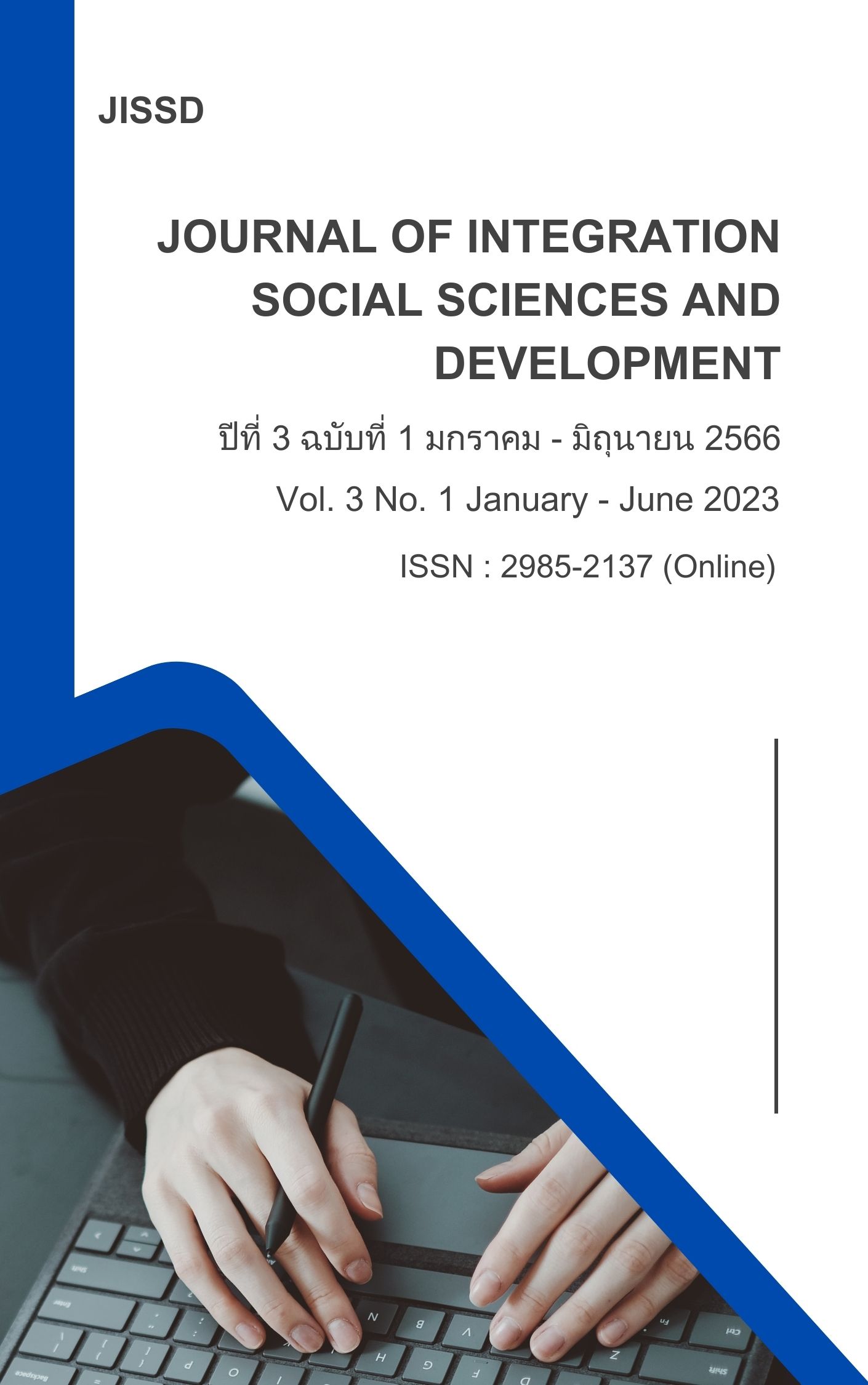Learning Management in The New Way of Life Bua Ban Campus Secondary Educational Service Area Office, Loei Nongbualamphu
Main Article Content
Abstract
The objective of independent study were 1) to study condition and problems on learning administration and management in new base period for the way of life of Buaban multi-campus under the office of Loei-Nongbualamphu secondary educational service area and 2) to compare on learning administration and management in new base period for the way of life of Buaban campus under the office of Loei-Nongbualamphu secondary educational service area by dividing on working experiences, position and education. the samples were 198 persons from administrators and teachers in academies of Buaban multi-campus under the office of Loei-Nongbualamphu secondary educational service area by using the table of Krejcie & Morgan and stratify sampling. the instruments using for data collecting were the 5 rating scales questionnaires with the confidence 0.90 the statistics using for data analysis included percentage, mean and standard deviation. The hypothesis testing used t-test (One-way ANOVA). The results of the study found that 1) Learning management in the era of the new way of life, Buaban Campus. Overall, it is at a high level. Arranged in descending order as follows: evaluation aspect in new way of life-based education, teaching and learning management aspect, curriculum administration aspect, listening to student voices reflected from teachers, parents and communities, and development aspect teacher. 2) The results of the comparison of learning management approaches in the era of the new lifestyle base of the Saha Buaban Campus found that overall and each aspect, classified according to work position. Overall, there is no difference.
Article Details
References
กรมควบคุมโรคติดต่อ. (2563). รายงานประจำปี 2563. สืบค้นจาก https://ddc.moph.go.th/uploads/ckeditor2//files/รายงานประจำปี2563.pdf.
คณะแพทยศาสตร์โรงพยาบาลรามาธิบดีมหาวิทยาลัยมหิดล. (2563). รายงานผลการดำเนินงานประจำปี 2563. สืบค้นจาก https://www.rama.mahidol.ac.th/cme/th/result63.
ชูศรี วงศ์รัตนะ. (2553). เทคนิคการใช้สถิติเพื่อการวิจัย. (พิมพ์ครั้งที่ 12). กรุงเทพฯ: ไทเนรมิตกิจ อินเตอร์ โปรเกรสซิฟ.
ณัฐพัชร์ บุญเกตุ. (2564). การบริหารการจัดการเรียนรู้ในยุคฐานวิถีชีวิตใหม่ของโรงเรียนขยายโอกาสทางการศึกษา สังกัดสำนักงานเขตพื้นที่การศึกษาประถมศึกษาสุโขทัยเขต 2. Journal of Roi Kaensarn Academi, 6(8), 69-80.
บุญชม ศรีสะอาด. (2560). การวิจัยเบื้องต้น ฉบับปรับปรุงใหม่. (พิมพ์ครั้งที่ 10). กรุงเทพฯ: บริษัท สุวีริยาสาส์น จำกัด.
พระมหาชนะชัย มงฺคโล, พระครูโอภาสนนทกิตติ์ และพระมหาญาณวัฒน์ ฐิตวฑฺฒโน. (2565). แนวทางการจัดการเรียนการสอนพระปริยัติธรรม แผนกธรรมสนามหลวงตามหลักจักร 4 ยุคฐานวิถีชีวิตใหม่จังหวัดฉะเชิงเทรา. วารสารครุศาสตร์ปริทรรศน์ คณะครุศาสตร์ มหาวิทยาลัยมหาจุฬาลงกรณราชวิทยาลัย, 9(2), 34-44.
พัชราภรณ์ ดวงชื่น. (2563). การบริหารจัดการศึกษารับความปกติใหม่หลังวิกฤตโควิด-19. วารสารศิลปะการจัดการ, 4(3), 783-795
มติชนออนไลน์. (2563). ครม.เห็นชอบปรับเปิดภาคเรียนแรก ให้สถานศึกษาเลื่อนเปิดเทอม 1 ก.ค.. สืบค้นจาก https://www.matichon.co.th/politics/news_2127445.
วิทยา วาโย, อภิรดี เจริญนุกูล, ฉัตรสุดา กานกายันต์ และจรรยา คนใหญ่. (2563). การเรียนการสอนแบบออนไลน์ภายใต้สถานการณ์แพร่ระบาดของไวรัส COVID-19 : แนวคิดและการประยุกต์ใช้จัดการเรียนการสอน. วารสารศูนย์อนามัยที่ 9 : วารสารส่งเสริมสุขภาพและอนามัยสิ่งแวดล้อม, 14(34), 285-298.
ศธ. 360 องศา. (2563). ศธ.สั่งสถานศึกษาทั่วประเทศทั้งรัฐและเอาชน ปิดเรียนด้วยเหตุพิเศษ ป้องกันการแพร่ระบาดโควิด-19. สืบค้นจาก https://moe360.blog/2020/03/17/ศธ-สั่งสถานศึกษาทั่วประเทศ/.
สำนักงานเขตพื้นที่การศึกษามัธยมศึกษาเลย หนองบัวลำภู. (2565). ข้อมูลบุคลากร 2565. สืบค้นจาก https://web.sesao19.go.th/web/?cat=1.
สำนักงานคณะกรรมการขั้นพื้นฐาน. (2554). แนวทางการจัดการเรียนรู้สู่ประชาคมอาเซียน. กรุงเทพฯ: โรงพิมพ์ชุมนุมสหกรณ์การเกษตรแห่งประเทศไทย.
Breslow, L., Pritchard, D., DeBoer, J., Stump, G., Ho, A., & Seaton, D. (2013). Studying Learning in the Worldwide Classroom Research into edX’s First MOOC. Research & Practice in Assessment, 8(summer), 13-25.
Krejcie, R. V., & Morgan, D. W. (1970). Determining sample size for research activities. Education and Psychological Measurement, 30(3), 607-610
Matthews, D., & Schrum, L. (2003). High-speed Internet use and academic gratifications in the college residence. Internet and Higher Education, 6(2), 125-144.


